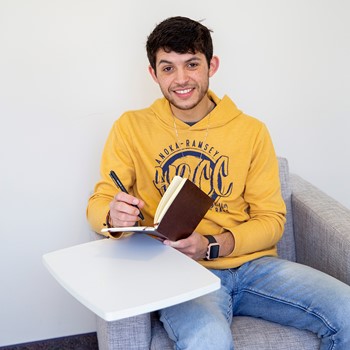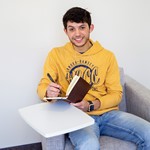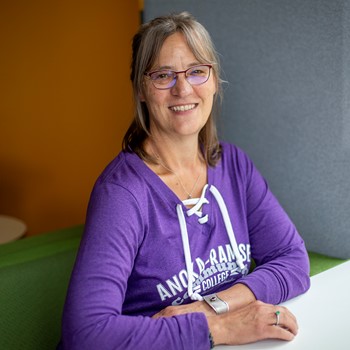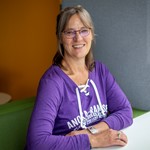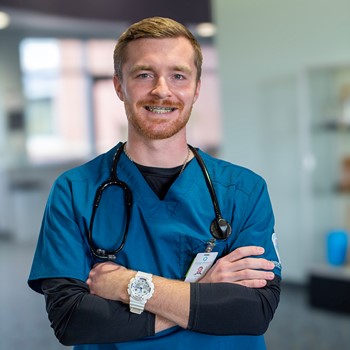Profile - Yuan Ding
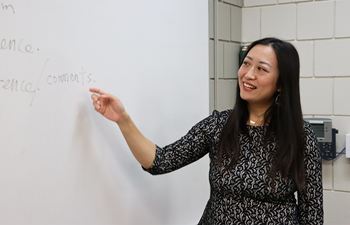
Instructor Profile
Ph.D., English, University of Minnesota
Question and Answer
-
Question
What is your approach to teaching?
Answer
In keeping with my areas of academic expertise, I practice a social justice-oriented pedagogy that provides students the theoretical tools to challenge their own preconceptions and the ideology that produces them. My curation of reading material for courses such as Multiethnic Literature and Asian American Literature, for example, prioritizes “minor literature” in the Deleuzian sense, i.e., texts “which a minority constructs within a major language.” Aiming not just to fulfill the course objective of teaching literary and cultural diversity in the United States, I create space for students to critique the problematic neoliberal definition of “multiculturalism” itself and harness the power of “minor literatures” to illuminate systemic injustices against marginalized groups, which often persist despite official endorsements of “multiculturalism” and “diversity.” Encouraging students to think beyond the understanding of ethnic literature as testimonials and the consumption of such literature as a form of tourism, I highlight instead the nature of self-authorship and the heterogeneity of ethnic experiences.
-
Question
Would you list some recent accomplishments?
Answer
Big Ten Emerging Scholar Prize (2019)
CAALS (Circle for Asian American Literary Studies) Essay Prize (2018)
“‘Asian Pride Porn’: Neoliberal Multiculturalism and the Narrative of Asian Racial Uplift in Kevin Kwan’s Crazy Rich Asians Trilogy.” MELUS. Fall 2020. “Ruth Ozeki,” Asian American Literature: An Encyclopedia for Students. Greenwood Press. 2021.
-
Question
What inspires you as a teacher?
Answer
I come from three generations of humanities professors, so my family has a big influence on my identity as an educator and a scholar. A few role models that I try to emulate in my own teaching and mentoring practices are Dr. Josephine Lee (UMN), Dr. Elizabeth Schultz (University of Kansas) and Dr. King-Kok Cheung (UCLA). Dr. Lee was the best dissertation advisor anyone can ask for. Dr. Schultz and Dr. Cheung were both mentors of mine back when I was living in Beijing (my hometown), both of whom encouraged me to apply for graduate programs in the States. All three professors exemplify the kind of mentor whose generous support and guidance ends up shaping their students’ careers. I strive to be that for my students here at ARCC.
-
Question
How would you describe what happens during one of your most successful classes?
Answer
As a humanities professor, I always try to complicate students’ worldviews and sort of peel back the curtains a little bit. When a class is successful, learning happens organically. It could manifest in the “aha!” moments you can clearly observe, but it could also happen outside of the classroom. I hope students continue to wrestle with the discomforts they may have felt with certain class topics. Sometimes I imagine them having little epiphanies about concepts that they had either not fully grasped in class or had dismissed as being ideologically oppositional to their beliefs.
-
Question
What makes your curriculum interesting or valuable to students?
Answer
My teaching is informed by my research interests, which span Global Asian studies, Global Anglophone literature, US racial formation, speculative fiction, and environmental literature. In terms of reading material selection, I tend to eschew canonical works in favor of ones written by BIPOC writers. All my classes aim to help students see the relevance of literature in their own lives, and to build their critical and theoretical vocabularies with which to discuss literature in depth. At ARCC, I’ve taught Global Literature: Environmental literature and the Global South, and Introduction to Literature. The former uses literary works (many of which speculative fiction by non-English writers) to illuminate the uneven distribution of environmental risks and vulnerabilities across the globe, and the latter delves into discourses on migration, refugeeism, diasporic identity, and US racial formation, in addition to covering a wide range of critical vocabularies in discussing different literary genres.
-
Question
How do you think students describe your teaching methods and classes?
Answer
I practice a student-centered andragogy that allows students to take their learning into their own hands. I hope to enhance students’ appreciation of their liberal arts education and make humanistic perspectives more meaningful to non-specialist audiences. I instill in my students a critical awareness of the rhetorical nature of language and equip them with critical resources to question dogma and norms. At the same time, I encourage students to participate in a broad range of public discourses through creative assignments such as writing blogs and making podcasts.
Fun Facts
-
Fun Fact #1
I love to rock climb both in a gym and in the mountains.
-
Fun Fact #2
I learned English as a second language in China, and I arrived in the US at the ripe old age of 25.
-
Fun Fact #3
I’m a pretty decent cook.

